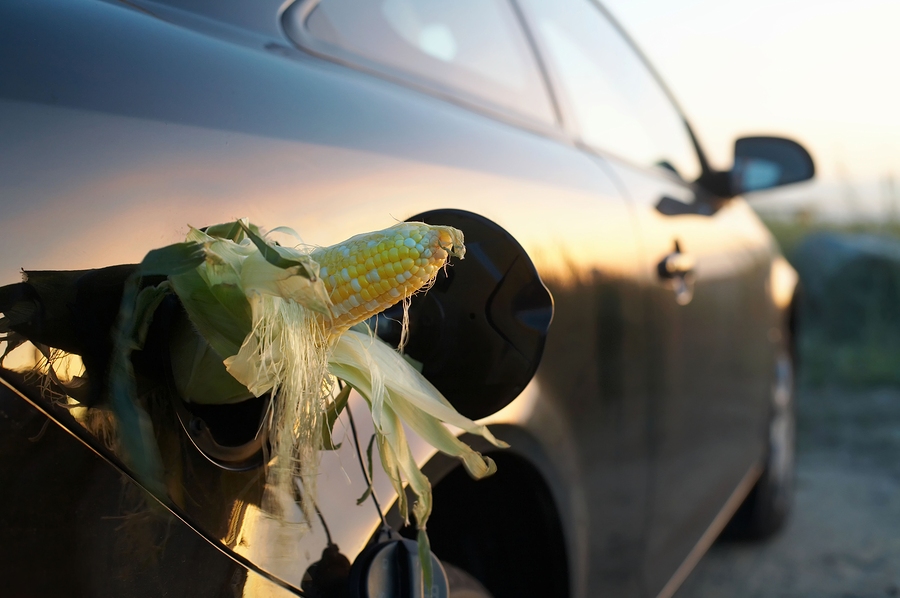WSJ Op-Ed: Time to Repeal the RFS

Today, American Energy Alliance President Thomas Pyle penned an op-ed in the Wall Street Journal on the Renewable Fuel Standard. In the piece, Pyle makes the case for repealing this broken and misguided policy. Below is the text from the op-ed:
At the Iowa Agriculture Summit earlier this month, most of the prospective Republican presidential candidates embraced the renewable-fuel standard, one of the worst examples of corporate welfare in America. This federal mandate props up the U.S. ethanol industry by forcing refiners to blend biofuels into gasoline. Despite the fact that it is an obvious business handout, White House hopefuls rarely attack the standard, lest they harm their chances of winning the Iowa caucuses.
Yet there’s a promising shift under way. A bipartisan group of legislators in Washington, D.C., including Sens. Pat Toomey (R., Pa.) and Dianne Feinstein (D., Calif.), recently introduced a bill to repeal the corn-ethanol portion of the RFS. The approach of Rep. Bob Goodlatte (R., Va.) is better: He has introduced legislation that would repeal the RFS outright. Neither proposal will be enacted, but they reflect a growing consensus that the RFS isn’t working.
When Congress enacted the RFS in 2005, its backers argued it would combat America’s dependence on foreign oil. Today, thanks to huge increases in domestic oil production, the U.S. is significantly more energy independent. In 2005, domestic oil accounted for 40% of total U.S. oil consumption. Now it constitutes three-quarters.
Unfortunately, the mandate has created a number of new problems thanks to its exceptionally poor design. The standard requires refiners to blend volumes—rather than percentages—of biofuels into gasoline based on fuel supplies and the EPA’s annual targets. So when gasoline consumption drops, refiners must increase the percentage of biofuels in the blend.
This is happening now: Gasoline consumption peaked in 2007 and has since dropped 6%. At today’s reduced consumption levels, complying with the renewable-fuel standard would require blending gasoline that contains more than 10% ethanol. That is higher than most cars are certified to use, according to AAA, and it would wreck lawn mowers, weed eaters, boats and motorcycles. The only reprieve has been bureaucratic ineptness at the EPA, which has failed to enforce the mandate and set thresholds for two years in a row.
At the same time, the RFS increases fuel prices. According to a 2014 report by the Congressional Budget Office, the mandate could raise gasoline prices by up to 27 cents between now and 2017. Moreover, ethanol is less energy dense than gasoline, which means that fuel economy drops—and drivers must fill up the tank more often—as ethanol content rises.
The renewable-fuel standard also makes it harder for families to put food on the table. Thanks to the mandate, a large and growing percentage of corn, soybeans and other crops is now used in biofuels production rather than for human consumption. Consider corn: In 2005, 15% of the nation’s corn harvest was used for fuel; today it is 40%. This makes corn more expensive. A 2012 study by PricewaterhouseCoopers found that the RFS raises costs for chain restaurants by $3.2 billion a year. Those costs are passed on to families in higher prices.
Even the national environmental lobby is now expressing concerns. The World Resources Institute recently found that a gallon of ethanol—throughout its journey from stalk to pipe—emits more carbon dioxide than oil, which “undercuts efforts to combat climate change.” Another new report from the University of Michigan’s Energy Institute reaches a similar conclusion. Researchers reviewed more than 100 papers on the environmental impact of biofuels and found that ethanol offers “no significant increase in the amount of carbon dioxide being removed from the atmosphere.” The conclusion: “Therefore, there’s no climate benefit.”
The only real winners are the ethanol producers, who have found a guaranteed source of income. From 2007 to 2013, the corn-ethanol industry spent $158 million lobbying the federal government on subsidies, tax credits and mandates, including the renewable-fuel standard, according to an analysis of public filings by Taxpayers for Common Sense. This is on top of $6 million in campaign contributions to federal candidates between 2008 and 2014. That money isn’t being spent to help corn and soybean farmers in rural America, but rather to secure government handouts.
These special-interest groups are, once again, planning to leverage the outsize influence of the Iowa presidential caucuses to pressure 2016 hopefuls into supporting the RFS. In January, Iowa Renewable Fuels Association Executive Director Monte Shaw promised a multimillion-dollar ethanol lobbying campaign that is “probably going to be the most aggressive issue advocacy effort people have ever seen in the history of the Iowa caucuses.” Sen. Ted Cruz (R., Texas) is the only prospective candidate to unequivocally oppose the standard.
The renewable-fuel standard is a corporate giveaway that makes food and fuel more expensive for American families. If presidential candidates won’t vow to repeal it, then it is incumbent upon Congress to tear it out by its roots.
Mr. Pyle is the president of the American Energy Alliance.


